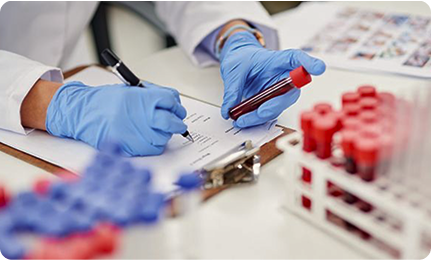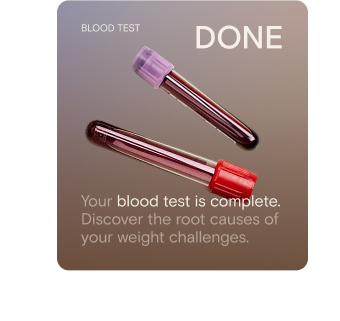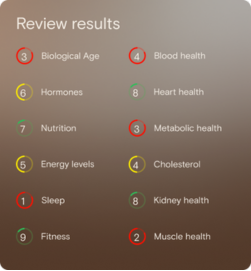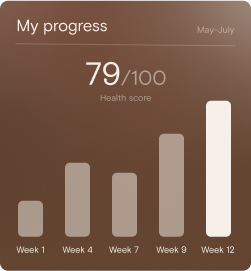What is bicarbonate?
Bicarbonate is a form of carbon dioxide in the blood that helps maintain the body’s acid-base balance. It’s an essential buffer that keeps your blood pH stable and supports vital cellular functions.
Why does it matter for long-term health and wellbeing?
Balanced bicarbonate levels help maintain efficient metabolism, muscle performance, and energy regulation. Keeping levels within range supports optimal body function and recovery over time.
What’s an optimal level of bicarbonate?
- Optimal range: 25–30 mmol/L
- Typical lab reference range: 22–32 mmol/L
What influences bicarbonate levels?
Hydration, nutrition (especially protein and mineral intake), breathing patterns, and physical activity can all influence bicarbonate levels. Even stress and sleep quality can affect how well the body maintains acid-base balance.
What does it mean if bicarbonate is outside the optimal range?
Values outside the optimal range can indicate an imbalance in your body’s acid-base regulation, which may be linked to lifestyle, hydration, or diet factors. Tracking trends helps identify when your system may need support to restore balance.
How can I support healthy bicarbonate levels?
Stay well hydrated, prioritise balanced nutrition with adequate minerals, and practise steady breathing and recovery routines after physical activity. Regular tracking can help you see how your habits impact your body’s equilibrium.
This information is provided for general health and wellness purposes only and does not replace medical advice.
References
- Royal College of Pathologists of Australasia. Bicarbonate (Total CO₂). RCPA Pathology Tests manual.
- Shaw, I. et al. (2022). Acid–base balance: a review of normal physiology. PMC.
- McNamara, J. (2001). Acid-Base Balance: Part I – Physiology. (Review of human acid-base physiology)
- Pathology Tests Explained. Bicarbonate (Total CO₂).




















.png)


.svg)

